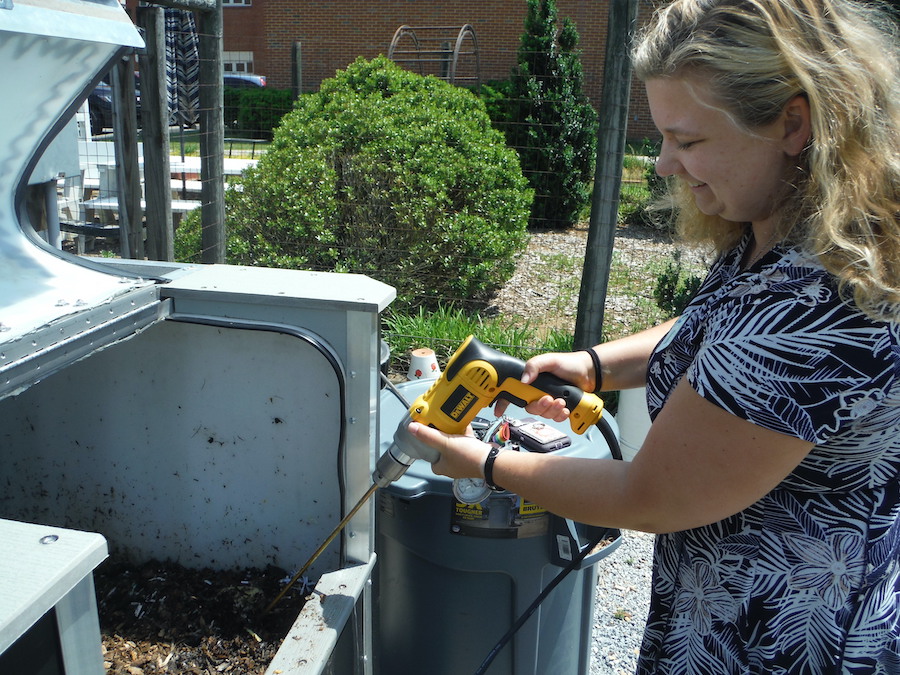 By now you all are veritable experts on your own backyard composting Earth Machines, so this week we thought it might be inspiring to hear about other local compost happenings. Thank you to Boxerwood educator Ginny Johnson for providing this update. (Our compost techie who also crunches your data each week, Ginny is pictured here turning the NBES compost with a drill/auger).
By now you all are veritable experts on your own backyard composting Earth Machines, so this week we thought it might be inspiring to hear about other local compost happenings. Thank you to Boxerwood educator Ginny Johnson for providing this update. (Our compost techie who also crunches your data each week, Ginny is pictured here turning the NBES compost with a drill/auger).
A grant from the World Wildlife Fund (WWF) has enabled Boxerwood to install and maintain two large-volume, high-rate Earth Cube composters at Natural Bridge Elementary School (NBES). The goal is school-wide lunch composting. As part of this pilot NBES custodians help 5th graders sort and weigh their leftovers at the end of each lunch period, recording data. The custodians then add the diverted food to the Earth Cubes along with wood chips and shredded paper for the “browns.”
The Earth Cubes are higher tech than the Earth Machines. They feature a constant aeration function to help materials reach the ideal compost temperature of 140 degrees Fahrenheit for quicker composting, a process that should complete in about 2 months. We are in week six of this pilot project and hope to expand to other schools. NBES plans to use the compost to grow vegetables for a school-based food pantry. Based on our data, we can project this school generates about 300 pounds of food waste weekly, with potential to divert about 5 tons of food waste each year through composting.
Over in Buena Vista, Parry McCluer MS is the first school in our area to divert all its food scraps from its operations every day. PMMS teacher Angie Patterson successfully completed her own Backyard Compost Challenge last year and as a result incorporated school based composting into a new PMMS course, Garden Ecology.
In this course students learned how to tackle food waste in their own lives and at their school. With help from Boxerwood, they also completed a series of cafeteria food waste audits, which involves sorting/weighing unwanted food and asking peers why they ate certain foods and avoided others. Based on their findings, the PMMS students proposed waste reduction recommendations to school leaders.. Project actions included setting-up four tumbling composters in a nearby school courtyard, adding a food waste collecting bin in the cafeteria, and installing a suggestion box so students have a direct line to the people who prepare their food. Students themselves take each day’s compost to their outdoor tumblers.
In both projects Boxerwood is sharing data with the World Wildlife Fund. This conservation organization compiles school food waste data from across the country to help to lobby for changes across the student lunch landscape.
Moral of the story: it might not feel like a lot when you add your couple pounds of compost to your Earth Machine each week, but you are contributing to a growing community of composting all over Rockbridge County, and beyond. Keep up the good work!
Until next time, Citizen Scientists!
